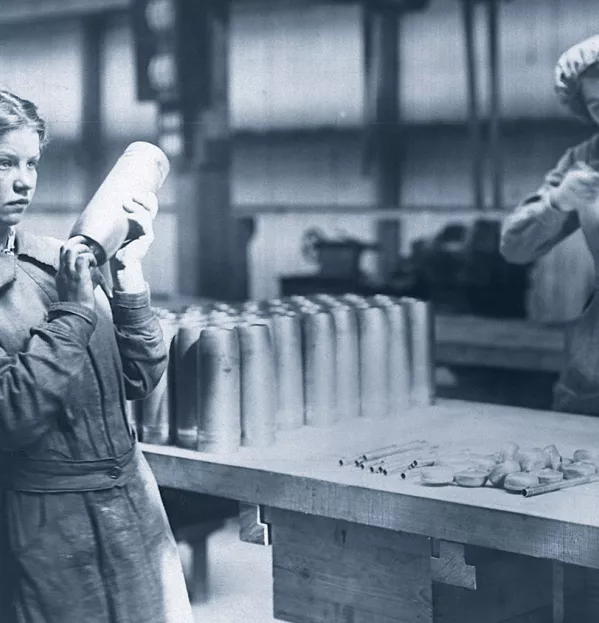Don’t ignore the great women of the Great War
Share
Don’t ignore the great women of the Great War
https://www.tes.com/magazine/archived/dont-ignore-great-women-great-war

The most poignant discovery I made last year was that my grandfather had not only fought in the First World War at the Battle of the Somme 1916, but that he had made it out alive. Seeing his medal was a tangible reminder.
What I hadn’t thought about was how my grandmother coped with his absence. Did she undertake work in the munitions factory or find other ways of helping to fill the gap left by the menfolk fighting in the trenches?
As my English department, in collaboration with art, drama and music, started to prepare the school’s tribute to those who fought and those who kept the country going during the First World War, I began to realise what the women’s war looked like.
I first encountered the journalist and propagandist Jessie Pope in the context of Wilfred Owen’s Dulce et Decorum Est, a poem that criticises her for her insensitive and inaccurate depiction of what the fighting would be like.
I was intrigued by Pope’s War Girls. It has a rather brisk tone and, of course, it’s terribly uplifting stuff designed to show everyone how to make the best of things; but it’s also a recognition of the value of women’s contribution outside the home.
And we have long known that women were invaluable at the front, too, nursing soldiers on both sides. Vera Brittain’s Testament of Youth is so incredibly moving as it covers so many losses in her family and among her friends.
When we, as a school, commemorate the final Armistice of that terrible war, we won’t downplay the horrors of the trenches or the appalling nightmares that so many men brought home to haunt them for years to come.
But we will tell the other side of the story: the story of women like Vera Brittain who endured so much so stoically and who nursed the wounded on both sides out on the Western Front, but also those who stepped into the shoes of their absent menfolk, and who still ran their homes.
In among the awful and unnecessary suffering of 1914-1918 was the beginning of a changing society. After proving themselves so valiantly at home and abroad, women could never retreat to their former obscurity. A hundred years on, we salute women’s courage, adaptability and determination. These women made the life choices our students have in 2018 truly possible.
Yvonne Williams is head of English and drama at a school in the south of England
Already a subscriber? Log in